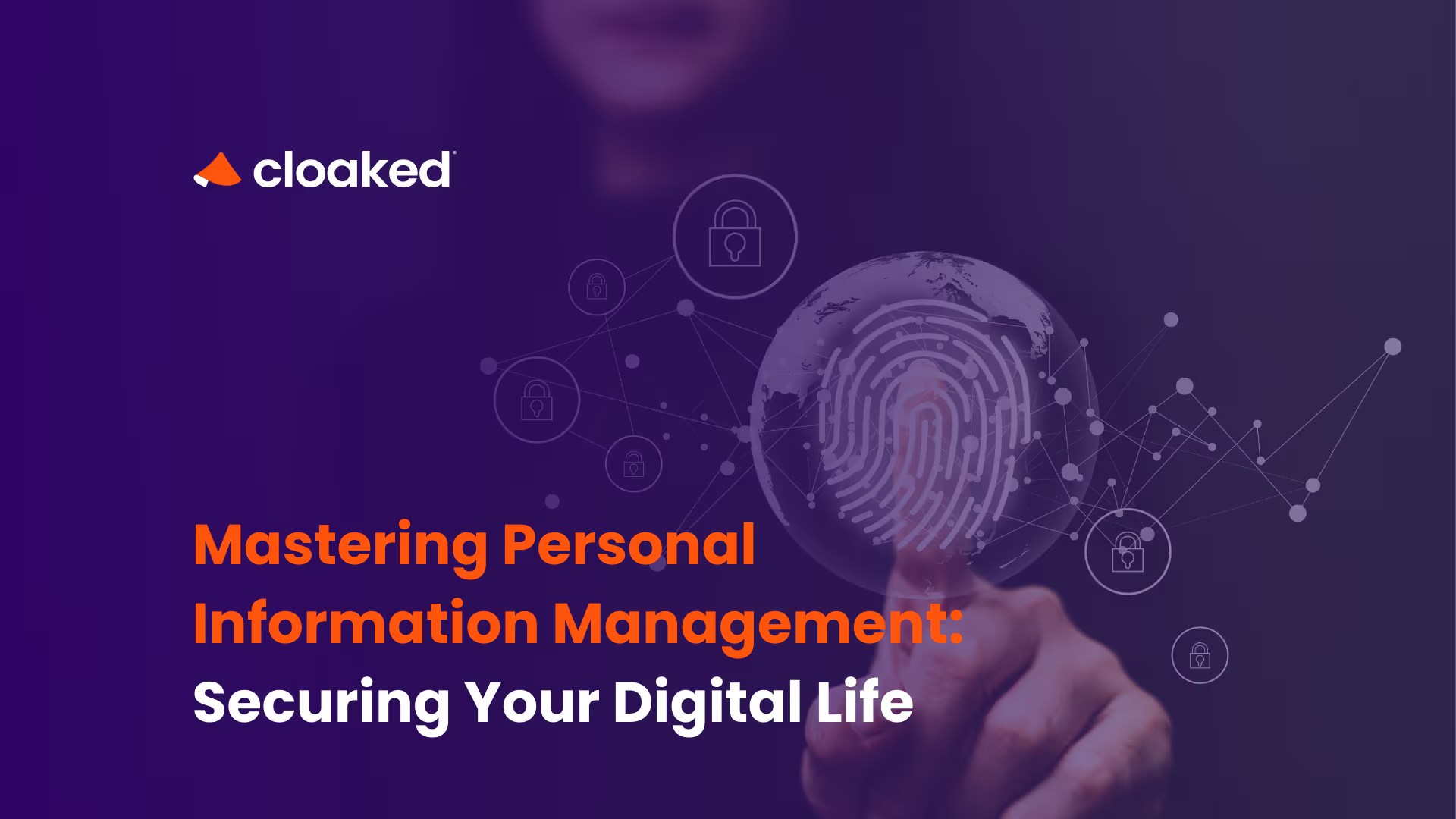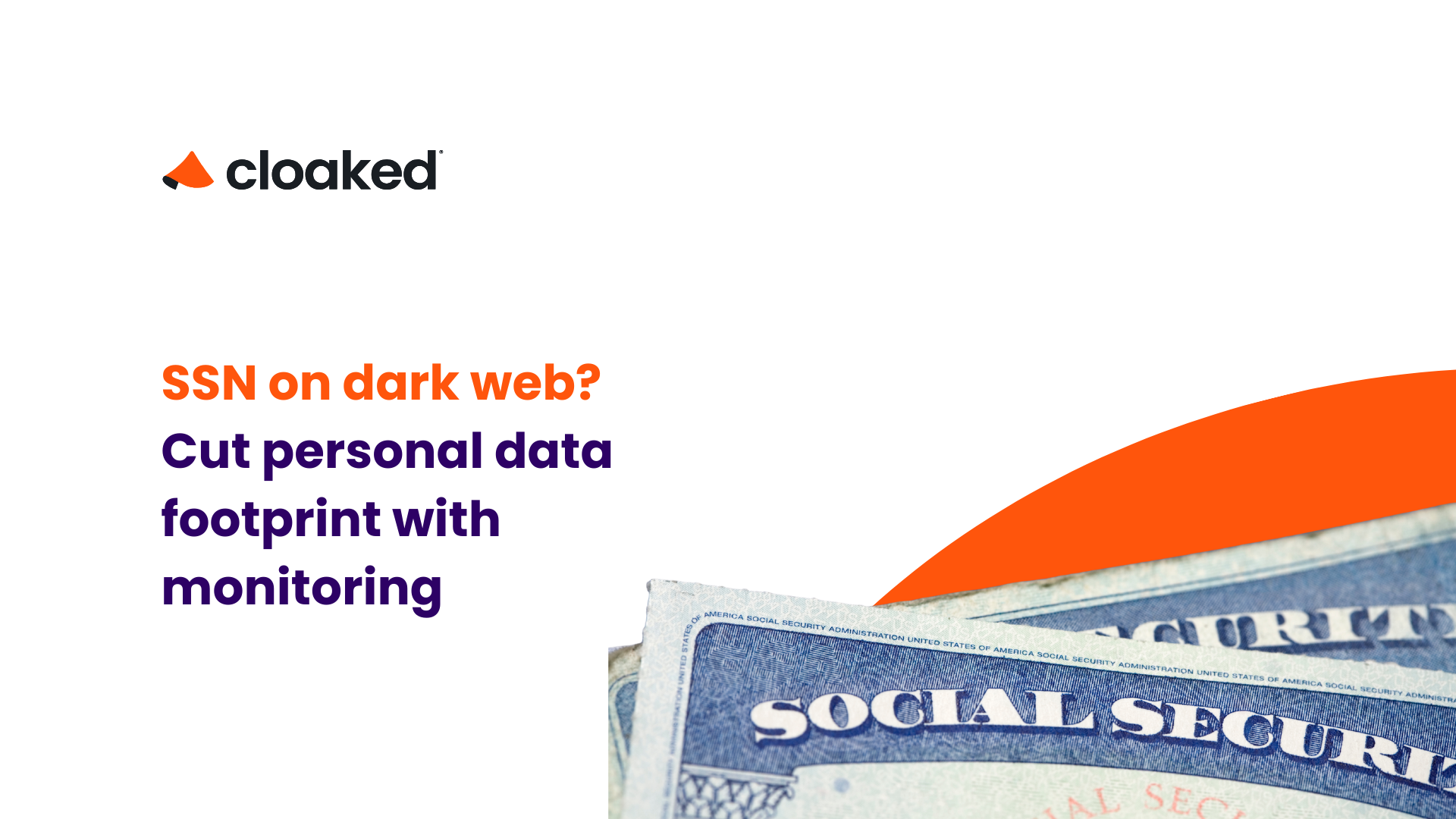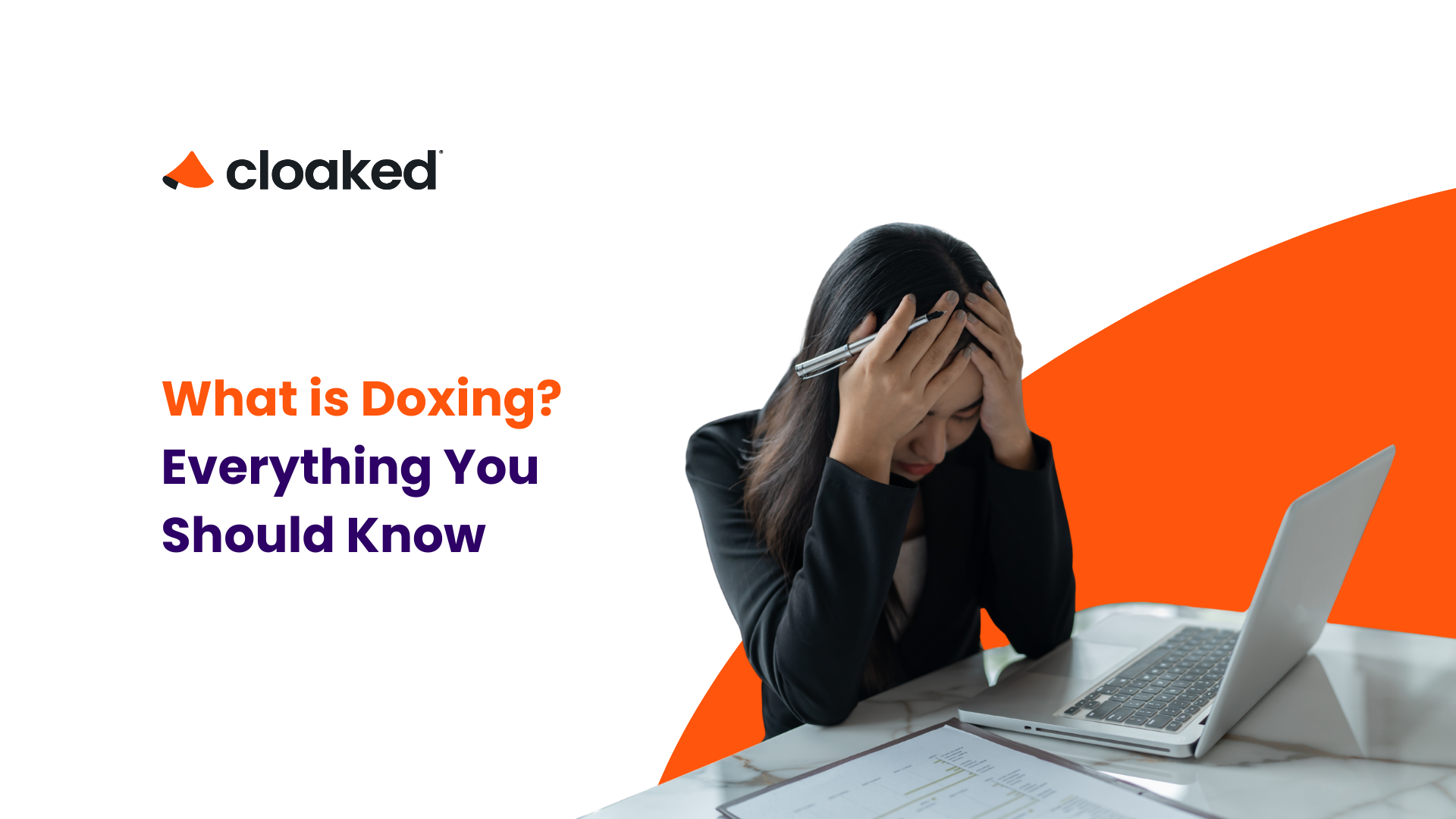In today's digital age, managing personal information is more critical than ever. With every click, swipe, and tap, we leave traces of our identity across the vast expanse of the internet. The challenge lies in safeguarding this data from prying eyes and maintaining our privacy. Let’s explore how you can protect your online life with practical strategies and tools, including innovative solutions from Cloaked.
Understanding Your Digital Footprint
Every time you browse the web, post on social media, or shop online, you leave a trail — your digital footprint. It's like breadcrumbs of your online activity, and while some of it is harmless, other parts can expose sensitive information. So, how do we manage this ever-expanding trail?
Conducting Digital Footprint Audits
Think of a digital footprint audit like spring cleaning for your online presence. It's about finding out what personal data is out there and taking steps to control it. Start by Googling yourself. You'd be surprised what might pop up. Check social media privacy settings and review what you've shared publicly. Tools like "Have I Been Pwned?" can help you see if any of your information has been compromised in data breaches.
Managing Exposed Information
Once you've identified the bits and pieces of your data floating around, it's time to manage them. Remove unnecessary information, update privacy settings, and consider using privacy-focused tools to limit data exposure. Remember, less is more when it comes to sharing online.
Cloaked: Your Ally in Data Removal
Enter Cloaked — a tool designed to help you regain control of your online presence. Cloaked specializes in removing personal data from data brokers, those pesky entities that buy and sell your information. By using such tools, you can effectively shrink your digital footprint and safeguard your personal information from prying eyes.
In today's interconnected world, managing your digital footprint isn't just wise; it's essential. By conducting regular audits and using tools like Cloaked, you can protect your identity and maintain your privacy in the digital age.
Privacy-First Communication Methods
In the digital playground where data is the new oil, secure communication isn't just a luxury—it's a necessity. Protecting personal data starts with choosing the right tools for the job. Let's look at some privacy-first communication methods that can help keep your information safe from prying eyes.
Encrypted Messaging Apps
Encrypted messaging apps are your best bet for keeping conversations private. These apps use end-to-end encryption, meaning only you and the recipient can read the messages. Some popular options include:
- Signal: A darling of privacy advocates, Signal offers robust encryption and is free to use. Its open-source nature means anyone can inspect its code for security flaws.
- WhatsApp: While primarily known for its user base, WhatsApp also employs end-to-end encryption for all communications.
- Telegram: Offers "Secret Chats" with end-to-end encryption and a self-destruct timer for messages.
Privacy-Focused Email Services
Email remains a critical communication tool, but it's often a weak link in privacy. Opt for services that prioritize security and privacy:
- ProtonMail: Based in Switzerland, ProtonMail provides end-to-end encrypted emails and a focus on user privacy.
- Tutanota: Offers encrypted email services with a clean interface and strong privacy policies.
- Mailfence: Combines email with other productivity tools, all wrapped in a secure, privacy-focused package.
Tools for Secure Communication
In addition to using secure apps, there are tools designed to bolster privacy across your communications:
- VPNs (Virtual Private Networks): Encrypt your internet connection, providing a layer of privacy and security when browsing or sending emails.
- PGP (Pretty Good Privacy): A method for encrypting emails and documents to ensure that only intended recipients can access them.
Cloaked's Contribution
Cloaked steps into the arena of secure communication with innovative tools designed to protect your privacy. By using advanced encryption techniques, Cloaked offers a suite of services that ensure your communications remain confidential. This makes it an excellent choice for those seeking comprehensive privacy solutions without compromising on usability.
Choosing the right communication tools can make a world of difference in protecting your personal data. With encrypted messaging apps, privacy-focused email services, and tools like VPNs, you can communicate securely and confidently.
Secure Online Shopping Practices
Shopping online feels like a breeze, but it requires a cautious approach to keep your financial information safe. Here are some foolproof practices to make your digital shopping experience secure.
Choose Secure Payment Methods
Opt for credit cards or trusted payment platforms like PayPal when making purchases online. These methods provide an extra layer of security compared to debit cards, which are directly linked to your bank account. Credit cards often offer fraud protection, allowing you to dispute unauthorized charges with ease.
Stick to Trusted Websites
Before clicking that "buy now" button, ensure the website is reputable. Look for a URL that begins with https://—the 's' stands for secure. Additionally, a small padlock icon next to the URL confirms that the site encrypts your data, protecting it from cyber snoops.
Regularly Monitor Bank Statements
Make it a habit to scrutinize your bank statements and credit card transactions. This vigilance helps spot any unauthorized charges or unfamiliar activity early on. If something seems fishy, report it to your bank immediately.
Additional Tips for a Secure Shopping Experience
- Avoid public Wi-Fi: Shopping on a public network can expose your data to cybercriminals. If you must shop on the go, use a VPN.
- Keep your software updated: Regular updates patch security vulnerabilities in your devices and apps.
- Set strong, unique passwords: Use a password manager to handle complex passwords that are tough to crack.
At Cloaked, we prioritize your online safety by offering advanced security solutions designed to protect your privacy and data. Whether it's secure payments or encrypted browsing, our tools provide peace of mind as you shop online.
By adopting these secure practices, you can enjoy the convenience of online shopping without compromising your financial safety.
Managing Digital Subscriptions
Navigating the tangled web of digital subscriptions can feel like juggling flaming torches—one wrong move, and you might end up with your data out in the wild. Digital subscriptions, while convenient, can inadvertently lead to data exposure if not handled with care.
Regular Review of Subscriptions
Just like you wouldn't let your fridge fill with expired food, you shouldn't let your list of subscriptions go unchecked. Regularly reviewing what you're signed up for is crucial. This not only keeps your finances in check but also ensures that your personal information isn't floating around more than it needs to be. A good practice is to:
- Audit your subscriptions every few months. Look for services you no longer use.
- Cancel those you don't need. It's a win for both your wallet and your privacy.
Secure Your Credentials
Keeping your credentials secure is like having a lock on your digital front door. Weak or reused passwords are an open invitation to cybercriminals. To safeguard your information:
- Use strong, unique passwords for each subscription.
- Employ a password manager. This tool can generate and store complex passwords, reducing the risk of breaches.
Cloaked: A Helping Hand
This is where Cloaked steps in as your digital bodyguard. By offering tools that help you manage subscriptions securely, Cloaked ensures that your data remains your own. Its features, such as masked email addresses and phone numbers, provide an additional layer of privacy, allowing you to engage with digital services without exposing your real contact information.
Managing your digital subscriptions with care is essential in today's interconnected world. With regular audits and secure practices, you can keep your data safe from prying eyes.
Best Practices for Internet Privacy and Security
In the digital age, keeping your information safe online is as important as locking your front door. Let's explore some key strategies to bolster your internet privacy and security.
Craft Strong, Unique Passwords
Passwords are like toothbrushes: they should be strong, unique, and changed regularly. A strong password is your first line of defense against cyber intruders. Aim for a combination of letters, numbers, and symbols that don't spell out anything obvious. Avoid common passwords like "123456" or "password." Instead, consider using a password manager to keep track of complex passwords for multiple accounts.
Embrace Two-Factor Authentication
Two-factor authentication (2FA) adds an extra layer of security. It's like a security system that requires two keys to unlock. After entering your password, you'll need to provide a second form of identification—like a code sent to your phone. This simple step can drastically reduce the chances of unauthorized access to your accounts.
Keep Software Up-to-Date
Software updates often include patches for security vulnerabilities. Ignoring them is like leaving a window open for hackers. Set your devices to update automatically. This goes for everything from your operating system to the apps on your phone.
Utilize Privacy Tools
Consider using privacy tools and services that protect your data from prying eyes. For instance, using a Virtual Private Network (VPN) can help keep your online activities anonymous. Also, tools like Cloaked offer privacy-focused features that can help you manage your digital footprint more effectively.
By implementing these best practices, you're not just securing your own digital life; you're also contributing to a safer online environment for everyone. Remember, in the digital world, your privacy is a valuable commodity. Protect it wisely.










